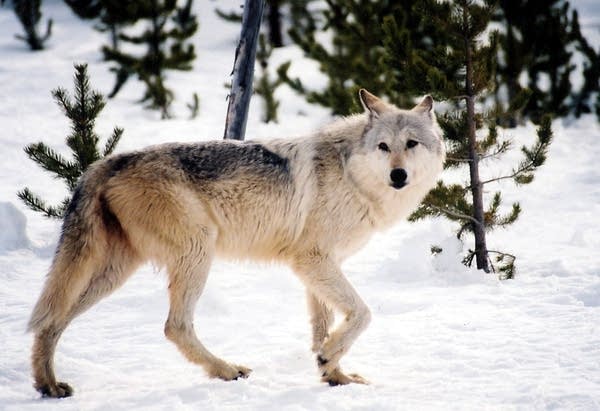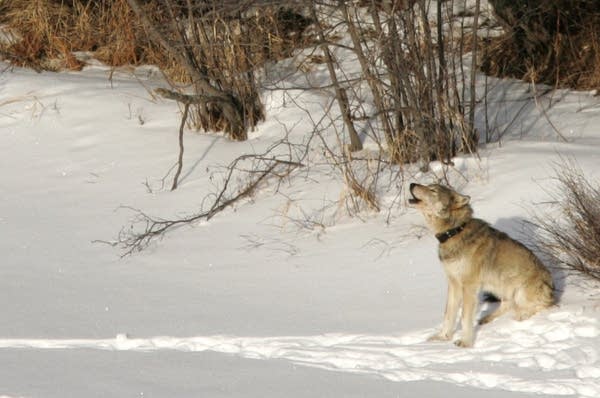Hearing, rally on ending protection for gray wolves coming to Brainerd

Go Deeper.
Create an account or log in to save stories.
Like this?
Thanks for liking this story! We have added it to a list of your favorite stories.
Minnesotans will have a chance this week to weigh in on a proposal to end federal protection for nearly all gray wolves in the lower 48 states.
The U.S. Fish and Wildlife Service proposed in March to remove gray wolves from the federal endangered species list and turn the management of wolf populations over to states. That could lead to hunting and trapping of wolves in Minnesota and elsewhere.
The federal government is now requesting public comments on the proposal, and has scheduled just one public hearing from 6:30 to 9 p.m. Tuesday at the Franklin Arts Center in Brainerd. Groups opposed to the de-listing move plan to rally before the hearing at Brainerd's Gregory Park.
Gray wolves were once almost extinct in the lower 48 states. Now, there are more than 6,000 across nine states. The Fish and Wildlife Service calls wolves' recovery one of the greatest comebacks for an animal in U.S. conservation history.
Turn Up Your Support
MPR News helps you turn down the noise and build shared understanding. Turn up your support for this public resource and keep trusted journalism accessible to all.
Minnesota's wolf population has grown substantially under federal protections. The state Department of Natural Resources estimates there are now more than 2,650 wolves in northern Minnesota.
But opponents of the controversial proposal argue that removing federal protections for wolves is premature and could lead to excessive killing of the iconic predators. Under the proposal, only Mexican gray wolves would remain on the endangered species list.
This is the latest move in a 15-year legal tussle over federal protections for gray wolves. Collette Adkins, carnivore conservation director with the nonprofit Center for Biological Diversity, said the U.S. government has tried several times to remove gray wolves from federal protection, only to have them restored by courts.
"This time, we're seeing the most egregious yet, where they're not just looking at wolves in the Great Lakes," she said. "They're actually trying to remove wolves' protection nationwide."

While wolves have made a successful recovery in the Great Lakes states such as Minnesota, Wisconsin and Michigan and the northern Rocky Mountains, Adkins said it's premature to lift federal protections for wolves in other states where they haven't fully recovered, such as the Pacific Northwest.
The public comment period on the proposal ends July 15.



